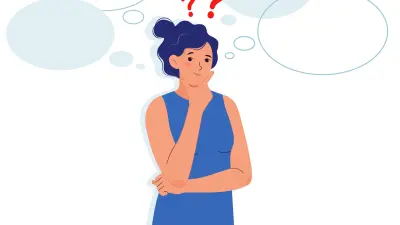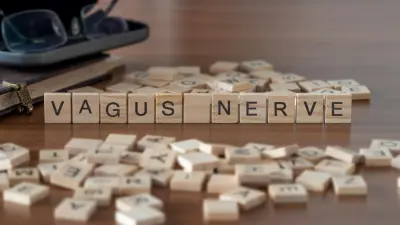Why does it seem like everyone’s attention span is shrinking?
On a this episode of the Huberman Lab Podcast, psychiatrist Dr. John Kruse joined Dr. Andrew Huberman to explain how modern life — especially technology — is reshaping our brains, increasing distractibility, and even influencing ADHD diagnoses.
Whether or not you have ADHD, understanding these patterns is critical for protecting your focus, your health, and your family’s future.
Is Technology Making Us All More ADHD?
There’s growing evidence that the more time we spend immersed in fast, fragmented digital environments — scrolling social media, jumping between notifications — the harder it becomes to maintain focused attention.
Dr. Kruse explains:
“You’re training yourself to overreact to any new distraction.”
It’s not that scrolling TikTok or Instagram causes clinical ADHD, but it increases traits associated with it:
- Decreased attention span
- Poor impulse control
- Difficulty sustaining effort on longer tasks
In essence, we are all becoming more ADHD-like.
Key point:
Digital environments fragment focus, encourage multitasking, and train the brain toward constant novelty-seeking — even in people without an ADHD diagnosis.
ADHD and the Double Risk of Addiction
ADHD doesn’t just make it harder to focus — it dramatically increases the risk of substance abuse and addiction.
Dr. Kruse shared these sobering statistics:
- In the general U.S. population, about 20% of people will struggle with addiction.
- Among those with ADHD, the risk nearly doubles to 40%.
Why?
ADHD involves problems regulating dopamine, norepinephrine, and impulsivity — the same brain systems tied to reward-seeking and risk-taking.
“Addiction isn’t just about despair — it’s also about impulsivity.” (Dr. John Kruse via Huberman Lab)
This is especially dangerous because addiction is a fast, artificial shortcut to the dopamine-driven attention and arousal ADHD brains crave but struggle to achieve naturally.
Why Stimulant Medications Actually Lower Addiction Risk in Kids
One of the biggest misconceptions about ADHD medications (like Adderall or Ritalin) is that they make kids more likely to develop substance addictions later in life.
In fact, the opposite is true.
Dr. Kruse notes:
“Putting kids with ADHD on appropriate stimulant medications normalizes their addiction risk to near that of the general population.”
Why?
Effective treatment helps:
- Improve impulse control
- Support better decision-making
- Stabilize attention systems in the brain
- Reduce thrill-seeking and risky behavior
Rather than causing addiction, stimulant treatment for real ADHD prevents the brain from seeking dangerous shortcuts later on.
Important note:
This benefit applies only when stimulant medications are carefully prescribed and monitored for legitimate ADHD cases.
How to Build Resilient Attention Skills in the Age of Distraction
Even if you don’t have ADHD, protecting and strengthening your attention has never been more important.
Here are science-backed strategies Dr. Kruse and Dr. Huberman recommend:
1. Minimize Unstructured Screen Time
Reserve specific blocks for social media or digital entertainment — and stick to them.
Avoid endless scrolling without intention.
2. Prioritize Real-World Engagement
Outdoor activities, in-person conversations, and hands-on hobbies help recalibrate attention systems overwhelmed by digital stimulation.
3. Train Your Brain to Relax
Cyclic sighing (a structured breathing practice) can strengthen your ability to shift out of constant high-arousal states — vital for mental resilience.
️ 4. Protect Sleep Routines
Irregular sleep magnifies distractibility, mood swings, and impulse control issues.
Consistency in sleep timing is just as important as sleep duration.
⏳ 5. Embrace Boredom
It’s okay — even healthy — to experience periods of low stimulation.
Allowing the mind to wander without constant external input strengthens attention over time.
“Boredom is a necessary condition for creativity and emotional regulation.”
Modern Life Is a Test of Attention
We live in a world designed to hijack our focus.
Understanding how technology, impulsivity, and stimulation-seeking behaviors intersect with ADHD helps us make wiser choices — for ourselves and for future generations.
Whether through better sleep, structured schedules, real-world experiences, or mindful use of technology, protecting our attention is one of the most powerful investments we can make in our mental and emotional well-being.
More on TodaysMama.com
3 Truths About Anxiety and ADHD That Will Change the Way You Think About Both
5 Ways to Turn Your Child’s ADHD Into a Superpower
12 Science-Backed Tools to Improve Focus and Manage ADHD Naturally (and with Medication)








Leave a Reply